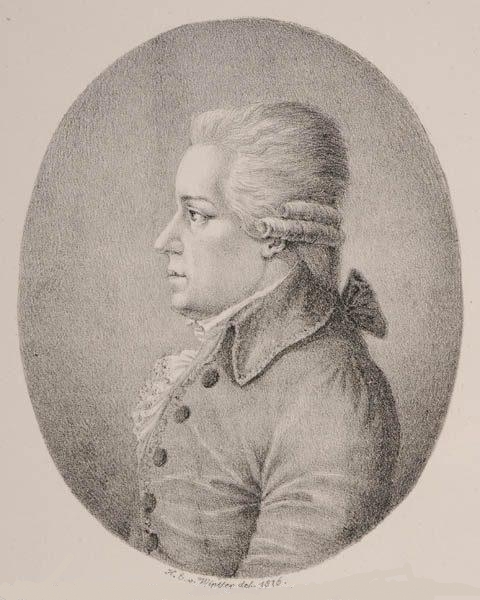Karl Ditters van Dittersdorf was one of the most respected composers of the 18th century. In his early years, though, he made a professional error that resulted in his arrest. Ditersdorf tells the story in the autobiography that he dictated to his son.
Dittersdorf had a respectable job composing for a prince in Vienna, but he fell in with the wrong crowd and soon was spending more than he earned. A count from Prague who was visiting Vienna admired Dittersdorf’s music and offered him a job that paid better. Out of loyalty to the prince, Dittersdorf turned down the offer.
But Dittersdorf continued to go into debt, and so he fled to Prague to take the higher-paying job. He was shocked to find that the count had left for a long stay in Paris. It would be weeks before Dittersdorf could even exchange letters with him, and as usual Dittersdorf was running out of money.
Stay informed on the latest news
Sign up for WPR’s email newsletter.
Through an oboist friend he found temporary work with another count, who commissioned six symphonies and two oboe concertos. With his earnings from them, Dittersdorf dutifully sent some of the money he owed to his landlord back in Vienna.
Just as things were beginning to look up, a policeman arrived to arrest Dittersdorf. The composer admitted his guilt at once and was hauled back to Vienna, where he was placed under house arrest with a diet of bread and water every fourth day. [Dittersdorf was overwhelmed with gratitude not to receive a worse punishment.] Moved by Dittersdorf’s remorse–the prince declared, “Go! Live a decent life! Then I shall forget the shame which you have brought on both of us.”
The prince was more than kind, instructing members of the household to nurse Dittersdorf through an ensuing illness and forbidding any of them to scold the errant composer for running away. As for Dittersdorf, he settled down and worked hard at performance and composition and regained the trust of his prince.
Wisconsin Public Radio, © Copyright 2024, Board of Regents of the University of Wisconsin System and Wisconsin Educational Communications Board.




